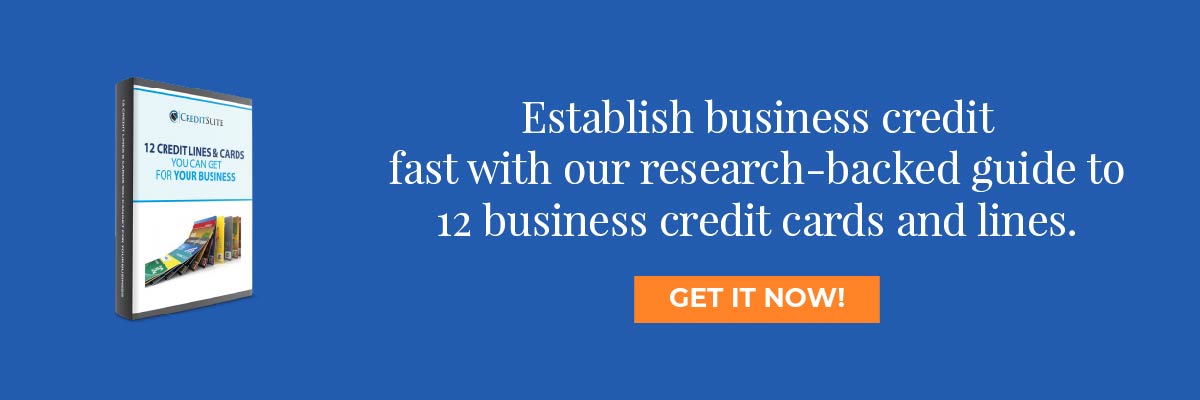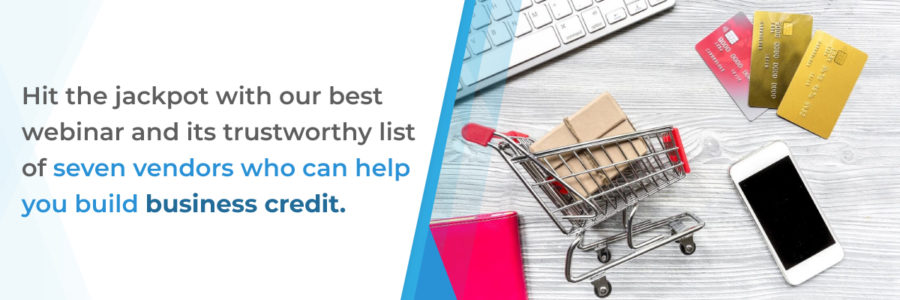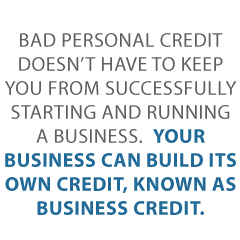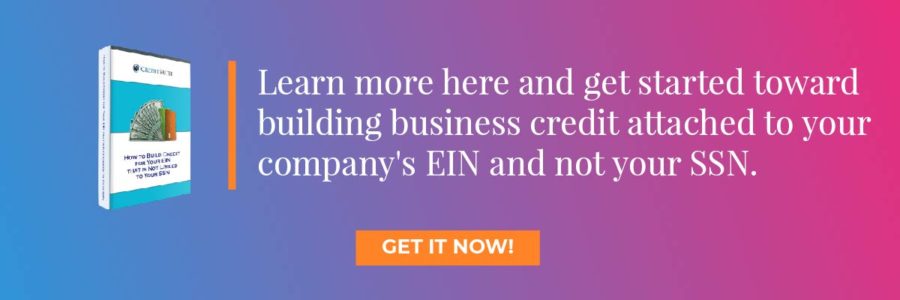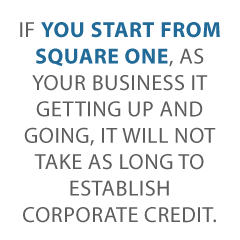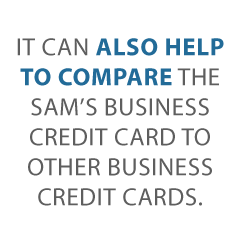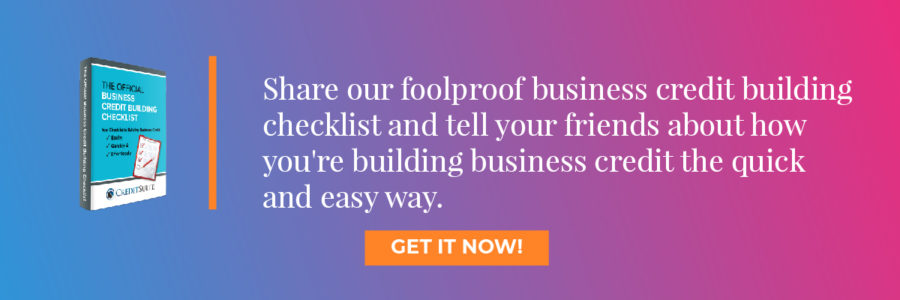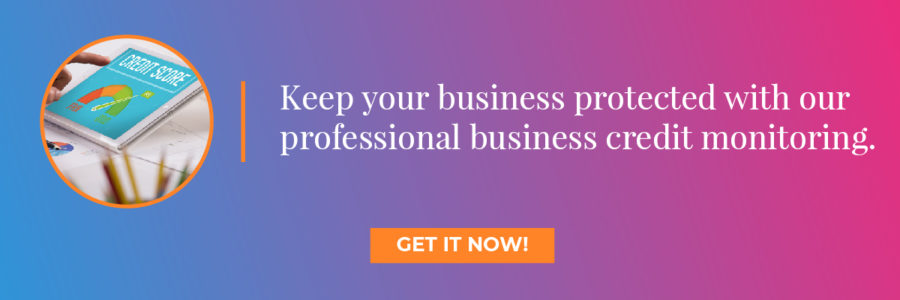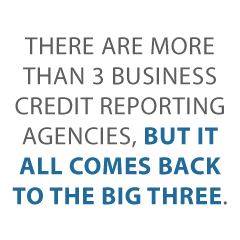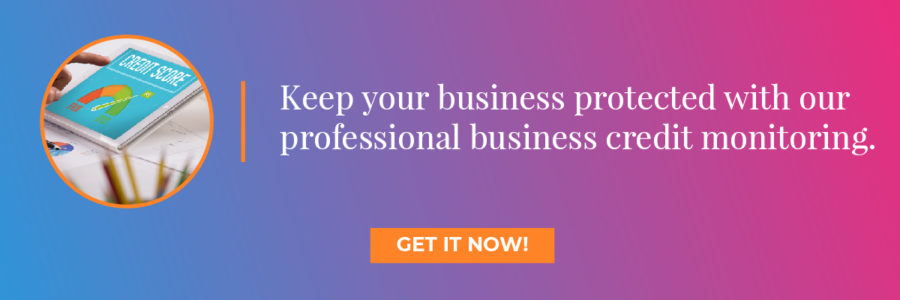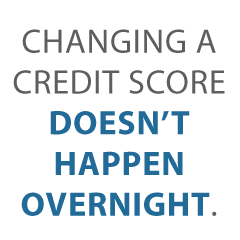
Awesome – Get Fair Credit Business Credit Cards
The Absolute Best Fair Credit Business Credit Cards
We looked at a lot of fair credit business credit cards, and did the research for you. So here are our choices.
Per the SBA, company credit card limits are a whopping 10 – 100 times that of personal credit cards!
This demonstrates you can get a lot more cash with small business credit. And it also means you can have personal credit cards at retailers. So you would now have an extra card at the same shops for your company.
And you will not need collateral, cash flow, or financial data in order to get company credit.
Fair Credit Business Credit Cards: Advantages
Benefits can differ. So, make certain to select the perk you like from this variety of fair credit business credit cards and reasonable alternatives.
Fair Credit Business Credit Cards
Capital One® Spark® Classic for Business
For fair credit, we like the Capital One Spark Classic for Business. It has no yearly fee. There are cash-back rewards. The card earns an unlimited 1% cash back on all purchases. There is an annual fee of $0.
With this card, you will get benefits including an auto rental collision damage waiver, and purchase security. And you also get extended warranty coverage. And you get travel and emergency assistance services.
But BEAR IN MIND: the ongoing APR is 24.74% variable APR. And the penalty APR is even higher, 31.15%. Also, there is no sign-up bonus.
Get it here: https://www.capitalone.com/small-business/credit-cards/spark-classic/
Wells Fargo Business Secured Credit Card
For another choice in fair credit business credit cards, take a look at the Wells Fargo Business Secured Credit Card. It charges a $25 yearly fee per card (up to 10 employee cards). It also requires a minimum security deposit of $500 (up to $25,000) and it is designed to help cardholders establish or rebuild their credit.
Choose if you want to earn 1.5% per dollar in purchases with no limits or get one point for every dollar in purchases. You also earn 1,000 bonus points for every month your company makes $1,000 in purchases on the card.
Details
Also, you get free FICO scores every month. There are no foreign transaction fees. It is possible to upgrade to unsecured credit. Your account is regularly reviewed.
And you may become eligible for an upgrade to an unsecured card with responsible use over time. Approval is not guaranteed and depends on factors including how you manage this and your other accounts.
APR is the current prime rate plus 11.90%. There is no introductory APR period and no sign-up bonus. This is not a card for balance transfers.
Get it here: https://www.wellsfargo.com/biz/business-credit/credit-cards/secured-card/
Establish business credit fast with our research-backed guide to 12 business credit cards and lines.
Credit Builder Company Credit Cards – Make Your Credit Surge!
Build your credit and you will end up no longer needing fair credit business credit cards.
Discover it® Student Cash Back
Be sure to check out the Discover it® Student Cash Back card. It has no annual fee. The credit card also offers a six-month introductory period of 0% APR on purchases. And there is an APR of 14.99 – 23.99% variable on all purchases after that period.
One one-of-a-kind feature is that it provides an incentive for students to maintain good grades with a $20 statement credit. If students earn a GPA of 3.0 or better each school year, the card will award the $20 statement credit each year for up to five years.
Details
Use this card to build personal credit. While this is a personal credit card versus a company card, for new credit users, their FICO scores will be important. And this credit card provides an excellent way to raise FICO while also getting rewards.
You can earn 5% cash back at different places each quarter such as grocery stores, gas stations, restaurants or Amazon.com up to the quarterly maximum. After that, this credit card offers unlimited 1% cash back on all purchases.
In the initial year, all cash back rewards are matched 100%.
Downsides include a cash advance fee of either $10 or 5% of the amount of each cash advance, whichever is more. And though they waive the first late payment fee, a fee of up to $37 applies on all other late payments. There is also a returned payment fee of up to $37.
Get it here: https://www.discover.com/credit-cards/cash-back/it-card.html
Reliable Low APR/Balance Transfers Business Credit Cards
Cards for transferring balances are another great alternative to fair credit business credit cards.
Discover it® Cash Back
Check out the Discover it® Cash Back card. There is a 10.99% introductory APR for six months from date of first transfer. So, this is for transfers under this offer which post to your account by January 10, 2019.
After the introductory APR expires, your APR will be 14.99% to 23.99%. So, this is based on your creditworthiness. Your APR will vary with the market, which is based upon the Prime Rate.
Details
You can get 5% cash back at different places every quarter. So, these are establishments like gas stations, grocery stores, restaurants, Amazon.com, or wholesale clubs. But this is up to the quarterly maximum each time you activate. Plus, automatically get unlimited 1% cash back on all other purchases.
You will get an unlimited dollar-for-dollar match of all the cash back you have earned at the end of your first year, automatically.
Get it here: https://www.discover.com/credit-cards/cash-back/it-card.html
Company Credit Cards with 0% APR – Pay Absolutely Nothing!
Cards with 0% APR can make for a terrific alternative to fair credit business credit cards.
Bank of America® Business Advantage Travel Rewards World Mastercard® Credit Card
The Bank of America® Business Advantage Travel Rewards World Mastercard® credit card has no annual fee and comes with a 0% introductory APR on purchases for the first nine months. Afterwards, the card has a 13.24 – 23.24% variable APR
Earn 3 points/dollar spent when you book travel with the Bank of America Travel Center and 1.5 points/dollar on all other purchases. You can earn unlimited points and points never expire.
Details
There is a 25,000-point sign-up bonus when you spend $1,000 in the initial 60 days of opening up the account. Cardholders get travel accident insurance, and lost luggage reimbursement.
They also get trip cancellation coverage, trip delay reimbursement and other perks.
There is no introductory rate for balance transfers. Also, bonus categories are limited.
Get it here: https://www.bankofamerica.com/smallbusiness/credit-cards/products/travel-rewards-business-credit-card/
JetBlue Plus Card
Have a look at the JetBlue Plus Card for an additional offer of a 0% introductory APR
Get six points/dollar on JetBlue purchases, two points/dollar at eateries and grocery stores. And get one point/dollar on all other purchases.
Details
Spend $1,000 in the initial 90 days and pay the annual fee, and get 40,000 bonus points. New cardholders receive a 12 month, 0% initial APR on balance transfers made within 45 days of account opening.
Afterwards, the variable APR on purchases and balance transfers is 17.99%, 21.99% or 26.99%, based upon creditworthiness. Benefits include a free first checked bag and 50% savings on in-flight purchases.
There is a $99 annual fee for this card.
Get it here: https://cards.barclaycardus.com/cards/jetblue-card/
Outstanding Business Credit Cards with No Annual Fee
Not paying an annual fee is always helpful. Cards with this feature are a great alternative to fair credit business credit cards.
Uber Visa Card
Check out the Uber Visa Card. Uber is the very first ride-sharing service to offer a credit card, in a partnership with Visa and Barclays.
The card provides 4% back per dollar spent at restaurants, takeout and bars, including UberEATS. Also, earn 3% back on hotel, airfare and vacation home rentals. And get 2% back on online purchases.
So, this includes retailers and subscription services like Uber and Netflix. And get 1% back on all other purchases. Each percent/point has a value of 1 cent. Redeem points for cash back, gift cards or Uber credits directly in the app.
By spending a minimum of $500 in the first 90 days, users can earn a $100 sign-up bonus. Cardholders spending a minimum of $5,000 annually are eligible to receive a $50 credit toward online subscription services.
Details
If you pay your cellphone bill with this card, you are insured up to $600 for cellphone damage or theft.
Cardholders are eligible for exclusive access to certain events and offers. Uber anticipates the majority of these offers to be available in major cities like New York, San Francisco, Los Angeles, Chicago and DC. There is no foreign transaction fee.
But there is no introductory rate. The APR is a variable 16.99%, 22.74% or 25.74%, based on your creditworthiness. Cardholders with less than stellar credit will be on the higher end of the range.
Also, there are restrictions on Uber credits. To redeem points as credits in the Uber app, accrue at least 500 points, or $5. Cardholders can convert a maximum of 50,000 points, or $500, in a given day.
Get it here: https://www.uber.com/c/uber-credit-card/
Costco Anywhere Visa® Business Card by Citi
Not taking Uber? Then you’ll need to fill your gas tank someway. Why not do so with the Costco Anywhere Visa® Business Card by Citi?
This card earns cash back with every purchase. Earn 4% cash back on the first $7,000 spent on eligible gas purchases annually (1% after that). Get 3% cash back at restaurants and on eligible travel purchases. Also, get 2% cash back at Costco and Costco.com. And earn 1% cash back on all other purchases.
Keep in mind: the $0 annual fee is only for Costco members. And an active Costco membership is required. Cardholders will get access to damage and theft purchase protection, extended warranty coverage and travel accident insurance.
Also, there is no sign-up bonus available with this card.
Get it here: https://www.citi.com/credit-cards/credit-card-details/citi.action?ID=Citi-costco-anywhere-visa-business-credit-card
Ink Business Cash℠ Credit Card
Look at the Ink Business Cash ℠ Credit Card. Companies can earn cash back with every single purchase. Spend $3,000 in the first three months from account opening. And you’ll earn a $500 bonus cash back.
There is a $0 yearly fee with a 0% introductory APR for 12 months on purchases and balance transfers. Afterwards, the APR is a 15.24 – 21.24% variable.
The card features travel and purchase coverage benefits. So, this includes an auto rental collision damage waiver and extended warranty protection.
Details
Earn extra cash back on business categories. So, these include office supply stores, telecommunications, gas stations and restaurants.
Note: this card has a balance transfer fee. Pay 5% of the amount transferred or $5, whichever is greater. Also, there is a foreign transaction fee of 3%.
Get it here: https://creditcards.chase.com/small-business-credit-cards/ink-cash
United MileagePlus Explorer Business Card
Get a good look at the United MileagePlus Explorer Business Card.
Earn 2 miles/dollar with United and at restaurants, filling stations and office supply stores. All other purchases get 1 mile/dollar. Earn a 50,000-mile sign-up bonus after spending $3,000 in the initial three months from account opening.
Benefits include priority boarding, a free first checked bag for you and a companion on the same reservation.
Details
Also, get two United Club passes annually. And get hotel and resort perks including upgrades. Additionally, get early check-in and late checkout. And get an auto rental collision damage waiver.
Also, get baggage delay insurance, lost luggage reimbursement, trip cancellation and interruption insurance. Finally, get trip delay reimbursement, purchase protection, price protection and concierge service.
After the first year, the card has an annual fee of $95. APR of 17.99% – 24.99%, based on creditworthiness.
Get it here: https://creditcards.chase.com/small-business-credit-cards/united-mileageplus-explorer-business
Establish business credit fast with our research-backed guide to 12 business credit cards and lines.
Starwood Preferred Guest® Business Credit Card from American Express
Another possibility is the Starwood Preferred Guest Business Credit Card from American Express.
This credit card is for those who stay at Starwood Preferred Guest and Marriott hotels often. Earn six points per dollar of eligible purchases at participating SPG and Marriott Rewards hotels.
And get four points per dollar at American restaurants, American gas stations, and on US purchases for shipping.
Also, earn four points to the dollar on wireless telephone services purchased directly from US service providers. For all other eligible purchases, earn two points per dollar.
Details
Get 75,000 bonus points when you spend $3,000 in the initial three months of account opening. Benefits include free in-room premium internet access, Sheraton Club lounge access, and purchase protection.
Plus you get car rental loss and damage insurance. And you get baggage insurance. There is also a global assistance hotline. And there is a roadside assistance hotline. And get travel accident insurance and extended warranty coverage.
The biggest issue is the annual fee. There is a $0 introductory annual fee for the first year, then it’s $95 after that. Plus there is no 0% introductory APR. Instead, there is a 17.74 – 26.74% variable APR
Get it here: https://www.americanexpress.com/us/credit-cards/business/business-credit-cards/spg-amex-starwood-credit-card
Terrific Cards for Cash Back
Capital One® Quicksilver® Card
Take a look at the Capital One® Quicksilver® Card. It offers flat-rate rewards of 1.5% on all purchases. There are no limits to the amount of cash back rewards which cardholders can earn. Also, the card has a $0 yearly fee.
New cardholders have a 0% APR on purchases and balance transfers for the first 15 months after opening the account. Then afterwards they have a 14.74 – 24.74% (variable) APR after that.
A cash bonus of $150 is available for those who make a minimum of $500 in purchases in 3 months of account opening.
Details
Also, cash back rewards do not expire for the life of the account. And there is no limit to how much you can earn.
This card also offers travel accident insurance. And you get an auto rental collision damage waiver. There are no foreign transaction fees. And there is extended warranty coverage.
Downsides are the flat reward rate, not allowing for any more than that. And the higher APR after the first 15 months.
Get it here: https://www.capitalone.com/credit-cards/quicksilver/
Establish business credit fast with our research-backed guide to 12 business credit cards and lines.
Small Business Credit Cards for Luxurious Travel Points
IHG ® Rewards Club Premier Credit Card
Take a look at the IHG ® Rewards Club Premier Credit Card. it earns hotel rewards worldwide. For each dollar spent at participating IHG hotels, get 10 points. Get two points per dollar spent at gas stations, grocery stores and restaurants.
Plus all other purchases earn one point. New cardholders can get an 80,000-point sign-up bonus when they spend $2,000 in the first three months of account opening.
Details
This card provides a free one-night hotel stay per year. Plus there is a variety of benefits like travel and purchase coverage and an upgrade to Platinum Elite status with the IHG Rewards Club. The club offers complimentary room upgrades when available and guaranteed room availability.
The most significant issue is that the card does not offer a zero percent APR introductory rate. And the standard APR is 17.99 – 24.99% variable. Also, the annual fee is $89.
Get it here: https://creditcards.chase.com/a1/ihg/premiernaep
Unbeatable Cards for Jackpot Rewards
Ink Business Preferred ℠ Credit Card
Get a look at the Ink Business Preferred Credit Card from Chase. Cardholders earn 3 points for every dollar spent on travel, shipping, internet, cable, phone and qualifying advertising with the card. So, this is up to $150,000 each year. And all other purchases earn an unlimited one point per dollar spent.
This is a Visa credit card.
Cardholders get benefits like purchase protection, trip cancellation or interruption insurance. They also get cellphone protection. And they get extended warranty coverage. And they get an auto rental collision damage waiver.
Details
Earn 80,000 bonus points when you spend $5,000 in the first 3 months from account opening. There is an annual fee of $95. You can add employee credit cards at no additional cost.
This credit card only offers 3 points per dollar to a limit of $150,000 a year. So, this is for travel, shipping, internet, cable, phone and qualifying advertising. All other purchases earn an unlimited flat rate of one point per dollar. And there is no introductory APR
Get it here: https://creditcards.chase.com/small-business-credit-cards/ink-business-preferred
The Best Fair Credit Business Credit Cards for You
Your absolute best fair credit business credit cards hinge on your credit history and scores.
Only you can select which features you want and need. So make sure to do your homework. What is excellent for you could be disastrous for somebody else.
And, as always, make sure to establish credit in the recommended order for the best, fastest benefits.
The post Awesome – Get Fair Credit Business Credit Cards appeared first on Credit Suite.

